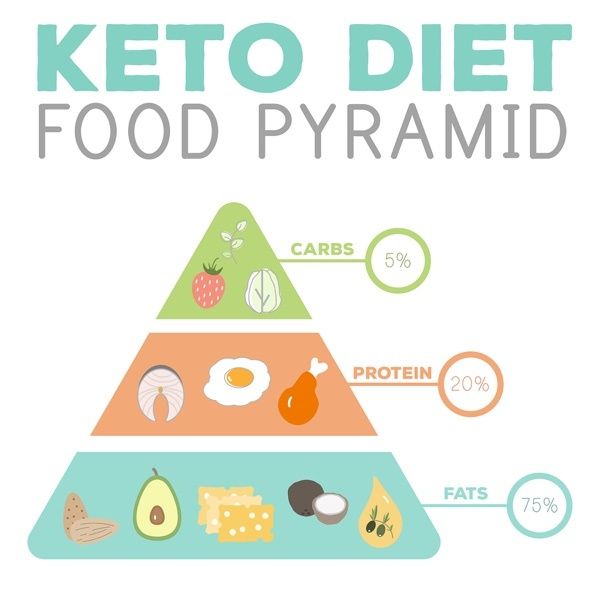Is the Keto Diet Bad for You?
January 23, 2019 26 Comments
Is the keto diet bad for you? The keto diet is a food plan created for people with epilepsy to reduce seizures.

Why would you want to try a diet created to treat a disease? Because the keto diet can help you lose weight. People are always looking for the silver bullet to get them beach body perfect (there is a whole diet called Beach Body).
Many of you who have spent time reading Snack Girl over the years have been exposed to my thinking about different types of plans such as the Whole 30. I have talked about the best and worst diet plans in an attempt to shed some light on a crazy industry.
Keto is an industry with many promoters such as Kourtney Kardashian and a slew of health and fitness gurus with best selling books. Everyone who wants to can write a book about keto because it isn’t a copyrighted work. It was created to be shared with the world as a way to help patients with epilepsy.
Would it help you?
Here is a diagram that explains the basics of the keto diet:

The keto diet aims to force your body into using a different type of fuel to sustain itself. Instead of relying on sugar, the keto diet relies on ketone bodies, a type of fuel that the liver produces from stored fat.
Burning fat seems like an ideal way to lose pounds. But getting the liver to make ketone bodies is not easy:
- It requires that you deprive yourself of carbohydrates, fewer than 20 to 50 grams of carbs per day (keep in mind that a medium-sized banana has about 27 grams of carbs).
- It typically takes a few days to reach a state of ketosis.
- Eating too much protein can interfere with ketosis.
Nothing new here in my opinion about how the body will respond to a dearth of carbohydrates. This looks like a modified Atkins, Zone, or any other of the low carb, high protein diets out there. Of course, the big modification is adding 75% of your daily calories in fat.
The photo at the top of the page is of the keto coffee or bulletproof coffee that includes butter or coconut oil to help you increase the amount of fat you are consuming in your day.
I can tell you that when I first read that about keto, I was seriously concerned about the health effects of the diet because it promotes a large amount of saturated fat. Most (and I say most) of the research has lead nutrition experts to recommend limiting saturated fat to under 10% of calories a day Harvard Medical School - The Truth About Fats.
The American Heart Association states: Decades of sound science has proven that saturated fat can raise your “bad” cholesterol and put you at higher risk for heart disease.
The books on keto have recipes including bacon, high fat cheese, beef, pork shoulder, and other foods that are soaked in saturated fat. They also have recipes including unsaturated fats such as avocados, olive oil, and nuts.
I do think that recommending a diet that is high in saturated fat for a healthy person is wrong. You might solve your weight problem but end up having a heart problem. How is that a good plan?
What I know about diets that promote a form of deprivation is that you can’t change just one thing. When you do something as dramatic as decrease your carbohydrate intake and increase your fat intake - your body will react and sometimes not positively. Side effects of the keto diet include headaches, irritability, and constipation.
One real issue is that if you are not following the advice of a licensed professional - you might be creating nutrient deficiencies because you excluded whole grains from your diet.
Is the keto diet bad for you? YES! At this point there have been no long term studies on the diet to understand its effect on your body over the years. For a short period of time, it is probably fine but I wouldn't recommend it. Why?
- You are on a restricted diet that may create a nutrient deficiency.
- You are eating way more than the recommended amount of saturated fat (heart disease potential)
- You can become irritable, constipated, and get headaches
Do I think as a nation we eat too many carbs? Absolutely!! My advice would be to start by reducing the amount (or eliminated it for a time) of added sugar in your diet. No cookies, candy, baked goods, soda, or sugary cereals, Then, stick to only whole grains (no white bread or white rice) and see if that changes things. Eat healthy fats in moderation and don't stop eating fruits, vegetables, lean meats, or whole grains.
What do you think of the keto diet? Have you tried it?
Other posts you might like:

Whole 30 Review: The Change Your Food Diet
This Whole 30 Review is not done without trepidation. I have good friends who swear by this diet and I would hate to anger them....

What are the Best and Worst Diet Plans?
Every year, US News & World Reports comes out with their list of best and worst diet plans.

First 20 Comments: ( See all 26 )
Susan Eadie
Chrissy
Heidi
Christiane
Greg Rousseau
Bebecca
Snack Girl
Barbara
Vivian
Kelly Lynn
Amy
BarbL
Leah G.
Karen M Johnson
Elva
Heidi
IFortuna
Jen
Michael
C
See all 26 Comments